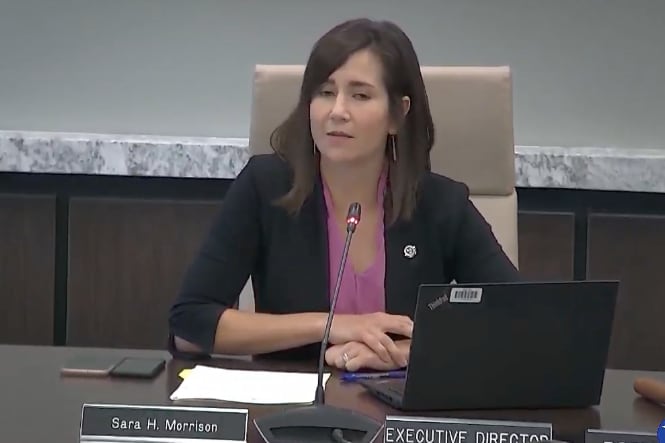Tennessee officials expect districts and charter schools to provide students with 180 days of “quality instruction” for 6½ hours each day, even if the coronavirus disrupts classrooms for a second straight year.
They’re also warning local school leaders not to expect the state to grant blanket waivers on required instructional time, including four hours a day for kindergarten students.
The State Board of Education approved an emergency policy and rule on Monday requiring districts and charter leaders to submit plans for how their school communities will teach students in 2020-21 while navigating the pandemic. That could include remote learning, traditional in-person classes, or a combination of the two.
The policy, modeled in part after similar approaches in North Carolina and Kansas, sets clear expectations for the new school year after a chaotic spring marked by wide disparities in learning depending on where a student lived. It also emphasizes the importance of delivering meaningful instruction while keeping students and staff healthy and safe during a public health emergency.
“We need both,” said Sara Morrison, the board’s executive director, on Tuesday. “To focus on safety without a similar focus on instruction would be the wrong approach.”
The plans must be submitted to the Tennessee Department of Education by July 24, putting schools on track to receive state funding through the formula known as the Basic Education Program, or BEP, as long as they follow through.
The policy introduces another important acronym for education leaders going forward: CLP, which stands for continuous learning plan.
Continuous learning plans should include basics of schooling like how they’ll take attendance, provide students with learning materials and technology, communicate with parents, train teachers, and support all of their students, including those who have disabilities or are learning the English language.
“Most of our students suffered academically this spring because we were unprepared, and we don’t want to go into a new school year similarly unprepared,” Morrison said. “The idea is to ensure that our districts and schools can provide ongoing instruction while also anticipating that school is not going to look like business as usual.”
In March — as the coronavirus spread and school buildings were shuttered for what turned out to be the rest of the school year — state lawmakers passed emergency legislation that waived the required 180 days of classroom instruction and removed the burden of spring testing. A month later, the state board approved emergency rules regarding student grades and graduation, while also shelving teacher effectiveness scores for the 2019-20 school year.
The new policy is the board’s first related to the coronavirus for the upcoming academic year as schools prepare to reopen without a vaccine. It was developed with the education department and feedback from superintendents, school boards, charter school leaders, and the Tennessee Charter School Center.
School leaders have been working for months to adjust their instructional plans, even before they knew they’d have to submit one to the state. Their plans must be approved by the department, which may ask for revisions but doesn’t want the process to become burdensome, said Charlie Bufalino, assistant commissioner of policy and legislative affairs.
“It’s our intent to make it as efficient and easy to complete as possible,” Bufalino told the board.
Dale Lynch, who leads the state superintendents group, said the new policy should provide a structure for meeting state requirements, as well as sharing best practices. Districts and charter schools will be required to publish their plans on their websites, and adjustments are expected along the way.
“We will do a much better job this school year of providing instruction than we did last year,” Lynch said. “At the same time, there are things that our state still hasn’t figured out when it comes to remote education, such as expanding broadband access to areas that aren’t connected. Another challenge is meeting the needs of students who are on individualized learning programs and require services like occupational therapy, physical therapy, and speech therapy.”
State officials hope that sharing plans statewide can help both education and government leaders troubleshoot together.
“No one is under the impression that this is going to be easy,” said Morrison. “Districts are juggling an awful lot right now. But we’re going to learn together as a state in real time.”






